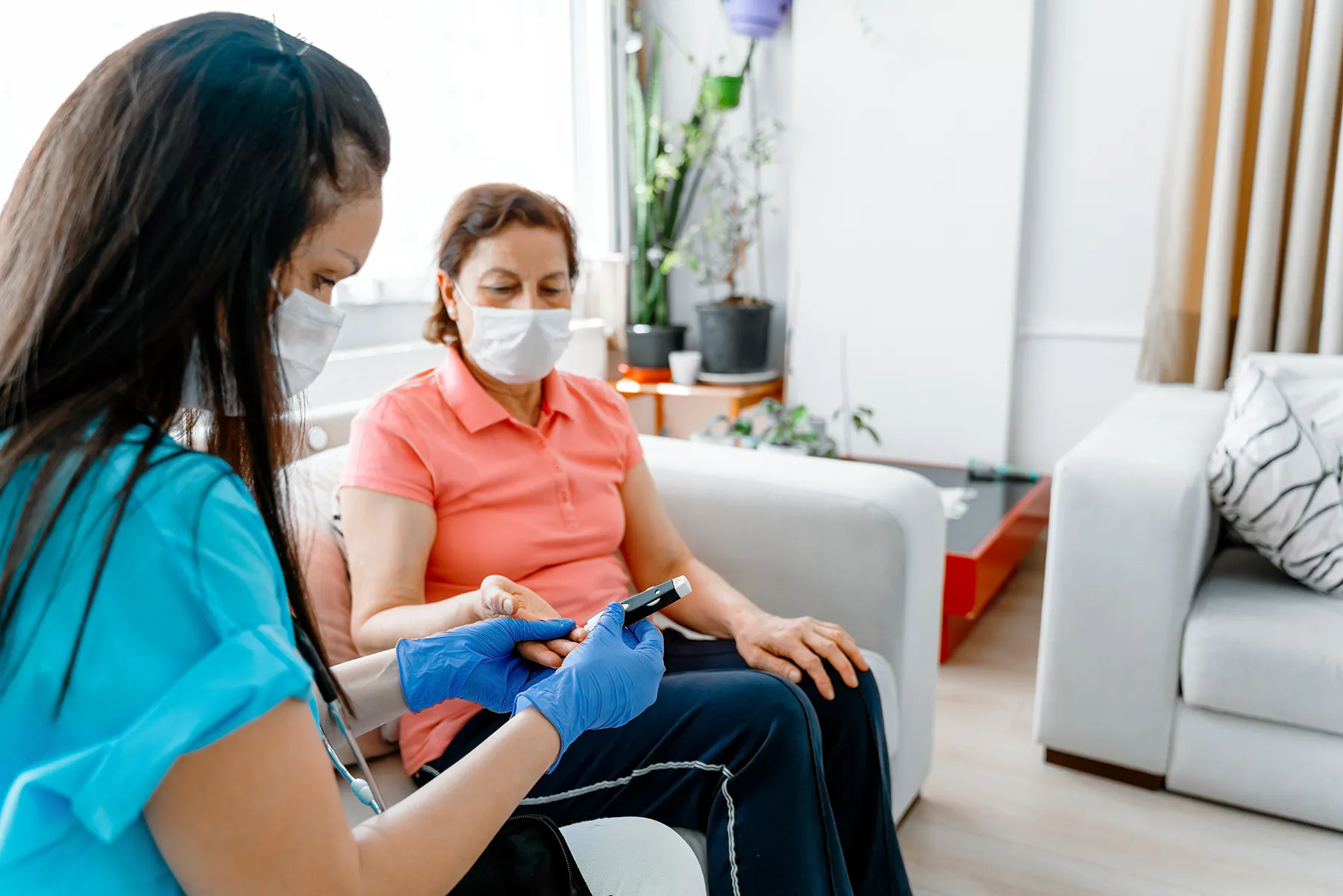The Relationship Between Diabetes and COVID-19

Q&A with Rajesh Garg, M.D., endocrinologist
What do we know, as of now, about the relationship between diabetes and COVID-19?
Dr. Garg: There is clearly a relationship between these two illnesses. Whether you look at the data from Wuhan, or New York, or Italy, you see that about 20% to 25% of the patients who wound up in the hospital with COVID-19 had diabetes. Meanwhile, diabetes is nowhere near that common in the community at large; about 8% to 10% of people have diabetes.
Studies are also underway to see if people can develop diabetes as a result of having COVID-19. It’s possible that the infection with this new coronavirus affects the cells in the pancreas that produce insulin, and could spur the development of diabetes in people who had never had it. We don’t know yet.
Are diabetics more likely to contract COVID-19 than other people?
Dr. Garg: At this time, it seems that patients with diabetes are not at increased risk of contracting the virus in the first place, but the medical science about that may change as more data becomes available.
If a person with diabetes does catch COVID-19, what is their risk level?
Dr. Garg: As of mid-July, the CDC was reporting that adults or children who have Type 2 diabetes are at increased risk of severe illness from COVID-19. Clinically, we have been seeing people with Type 2 diabetes develop more serious cases of the illness when they contract COVID-19. They become much sicker than other COVID-19 patients, they have more complications, and they die a lot more often. About one-third of the people who die from COVID have Type 2 diabetes. People who have Type 2 diabetes and who normally take oral medication may require insulin injections during treatment for COVID-19.
Also, in mid-July, the CDC also reported that adults or children who have Type 1 diabetes might be at increased risk of severe illness from COVID- 19.
We’ve observed that in both adults and children who have diabetes and who then develop COVID-19, their diabetes can be aggravated and can accelerate. They tend to experience an increased need for insulin. Sometimes they develop a serious complication of diabetes called diabetic ketoacidosis. They may go into a diabetic coma.
What precautions should people with diabetes be taking?
Dr. Garg: A lot of my patients have been asking me what they should do. They need to understand that because the illness can be so much worse for them if they do contract it, they have to take sensible precautions.
We’ve all been hearing about the steps to take for months now.
- Be thoughtful and careful about when and where you go out among other people. Consider the riskiness of the plans you’re making, and when in doubt, err on the side of caution.
- Wear a mask when you are out and around other people, and encourage others to do the same.
- When you do need to go out, follow CDC guidelines for leaving home for essential errands.
- If you must socialize, keep groups very small and meet outdoors if possible.
- Consistently practice social distancing, keeping at least six feet of distance between yourself and others.
What do you want people to remember?
Dr. Garg: I strongly urge people with diabetes to do all that they can to stay as healthy as possible, overall. The healthier any person is, the better they are likely to do if they do contract the virus.
Also, be careful about the things you hear or read. There is a lot of weak science getting covered in the media, and it can be confusing to people with diabetes. When you rely on trustworthy sources, you can separate facts from fiction.
COVID-19 is a new illness, and we still have a lot to learn about how diabetes affects it and vice versa. In addition to the CDC, the American Diabetes Association provides good guidance for patients.
Milly Dawson is a contributing writer for UMiami Health News.
Tags: covid and diabetes, covid-19 in Miami, Diabetes, Dr. Rajesh Garg
